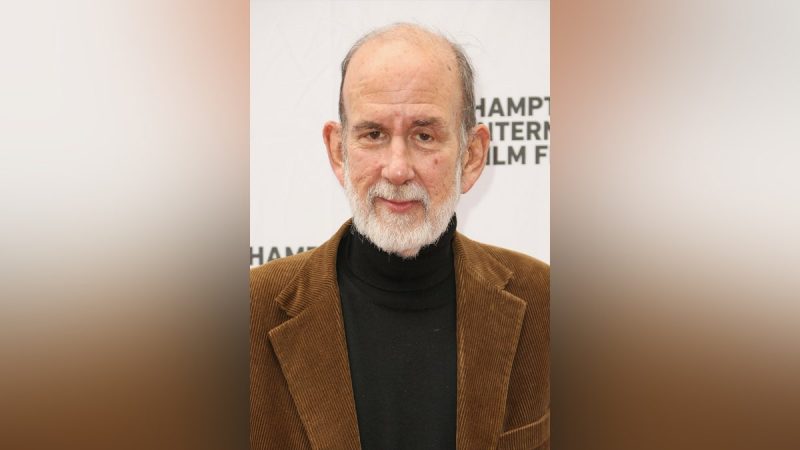
Michael A. Ledeen, a major American historian and intellectual, died after suffering a series of small strokes on Sunday at his residence in Maryland. He was 83 years old. Ledeen was a vigorous participant in contributing to the demise of the communist Soviet Union and its Iron Curtain allies in Eastern Europe.
Ledeen served as a special advisor on terrorism to President Ronald Reagan’s secretary of state, Alexander Haig, and later worked as a consultant for the National Security Council. Writing for the Asia Times, author and journalist David P. Goldman argued that Ledeen’s ‘personal contribution to America’s victory in the Cold War is far greater than the public record shows.’
Goldman noted that the Reagan administration, in 1983, sent Ledeen, a scholar of Italian history and fascism, to meet Italian Prime Minister Bettino Craxi to convince the Italian leader to allow the U.S. to deploy Pershing missiles to counter rising Soviet jingoism. Goldman added, ‘The incident reflects the high trust that Ledeen commanded in the Reagan administration and the strategic role that he played.’
After Italy accepted the Pershings, the then-Social Democratic German Chancellor Helmut Schmidt, who was reluctant for his nation to be first to house Pershing missiles, agreed to Reagan’s demand.
Leeden was a fan of former anti-communist American philosopher Sidney Hook, who declared during the Cold War that ‘Freedom is a fighting word.’
Ledeen would take his hard-charging world view against a new set of U.S. enemies after the ground zero of communism was defeated: radical Islamism in Iran, North Korea’s totalitarian regime, and Arab and Latin American despots bent on the eradication of the U.S.
In 2003, while working as the resident scholar in the Freedom Chair at the American Enterprise Institute, Ledeen wrote about former President George W. Bush’s Axis of Evil (Iran, North Korea and Iraq), ‘Most commentators ridiculed the very idea of the Axis of Evil, just as they laughed at Reagan’s description of the Soviet Union as an Evil Empire. The deep thinkers laughed at Reagan, and then somberly warned that such language was not only misguided but provocative, as if the Kremlin would be more aggressive as a result of the president’s speech.’
Ledeen stressed the importance of American leadership breeding inspiration among dissidents trapped in totalitarian systems: ‘The greatest of the Soviet freedom fighters, from [Vladimir] Bukovsky to [Natan] Sharansky, have since written about the surge of hope they felt when they saw that the American president understood why they were fighting.’
He would bring his same intellectual freedom toolkit to his principal worry in this century: the Islamic Republic of Iran. Ledeen garnered enormous respect and praise from Iranian dissidents seeking to dissolve the theocratic regime in Tehran, the world’s worst state-sponsor of terrorism, according to the U.S. State Department.
His wife, Barbara, told Fox News Digital about her late husband, ‘My only regret is that he didn’t outlive the regime.’
Leeden did not advocate military intervention in Iran. He was in the business of replicating Reagan’s anti-Soviet playbook for Iran’s clerical regime.
He told Fox News Brit Hume in 2005 that ‘the Western world, and in particular the United States’ needs to support political prisoners in Iran and demonstrations against the regime.
He told Hume, ‘We should be giving money to the various … Farsi-language broadcasters, some here, some in England, some in Sweden and so forth, some in Germany, to go on the air and share with the Iranian people the now-demonstrated techniques for a successful, nonviolent revolution.’
He coined the phrase ‘Faster, please!’ for his widely read blog at PJ Media to denote the great urgency to dismantle America’s enemies and stop Islamist-animated terrorism.
Ledeen was born in Los Angeles in 1941 and authored numerous books on national security, including ‘Perilous Statecraft: An Insider’s Account of the Iran-Contra Affair.’ He earned a Ph.D. in history and philosophy from the University of Wisconsin–Madison. His academic advisor at Wisconsin was the prominent historian George Mosse, who fled Nazi Germany because of antisemitism.
Ledeen cultivated a new generation of academics, journalists, think tank scholars and authors at his Chevy Chase home. His residence became a kind of informal salon for intellectuals and foreign policy types who had freshly arrived in Washington, D.C.
He was also a top-level bridge player and won a national championship, the Truscott/U.S.P.C. Senior Teams. He is survived by his wife, a daughter, Simone, who served as a deputy assistant secretary of defense during the first Trump administration, and his two sons, former Marine Corps officers Gabriel and Daniel.

